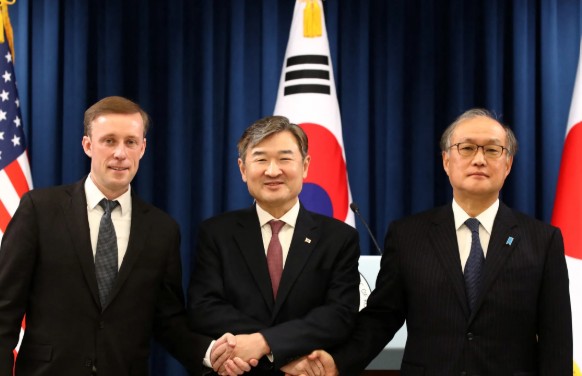U.S., South Korea, Japan Launch First Trilateral Working Group Under Lee Jae Myung’s Presidency

South Korea, the United States, and Japan have launched their first trilateral steering committee meeting under the administration of South Korean President Lee Jae Myung, signaling a strengthened regional alliance aimed at countering North Korea’s growing cyber threat.
The high-level meeting, held in Tokyo, brought together representatives from the foreign ministries of all three nations. Officials agreed to build on recent summit momentum by crafting more results oriented strategies for cooperation. The gathering marks a significant step forward in institutionalizing trilateral collaboration, with a strong emphasis on cyber security and regional stability.
Focus on North Korea’s Cyber Activities
One of the central topics was North Korea’s increasing reliance on illicit cyber operations to fund its weapons programs. At the fourth trilateral working group session, approximately 70 officials shared intelligence and assessments on North Korea’s digital crimes, including cryptocurrency theft, online fraud, and money laundering.
The three allies also discussed the ongoing threat posed by North Korean IT operatives, many of whom are believed to be working abroad under false identities to funnel foreign currency back to the regime.
Expanding Public-Private Cyber Cooperation
In a notable development, the three nations committed to extending their cooperation beyond government-to-government channels. Officials pledged to involve the private sector in future initiatives, recognizing the vital role of tech companies and financial institutions in identifying and disrupting cyber threats.
This initiative comes amid heightened geopolitical tensions in Northeast Asia, with North Korea continuing its missile tests and cyber offensives. The Biden and Lee administrations, along with Tokyo, have prioritized bolstering defense, intelligence sharing, and cyber resilience across the Indo-Pacific.
The steering committee is expected to meet regularly to assess implementation of agreed measures and to adapt their joint approach to evolving digital threats.
